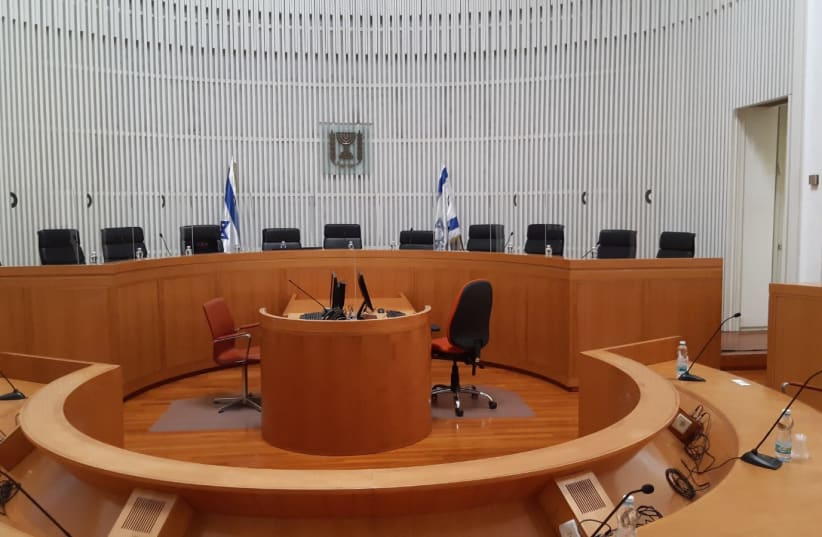The petition, filed earlier this month, points out that students in institutions of higher education are able to receive subsidies for child daycare from the government as part of efforts to integrate mothers of young children into the workforce.
Additionally, families in which the father is engaged in full time religious studies at a “kollel,” a yeshiva program for married men, and in which the mother is employed, are also eligible for the subsidies.
The petition argues that women who learn in institutions for advanced religious study should be similarly eligible for these benefits.
In total, around 130,000 children benefit from the subsidies every year, and the Labor, Social Affairs and Social Services Ministry spends some NIS 1.2 billion on these benefits.
In recent years however, the number of women, mostly in the religious-Zionist sector, studying in long-term, advanced religious study programs has increased significantly.
Many of those who complete such programs go on to fill roles as educators and spiritual leaders in different communal positions.
But such programs are not recognized by the ministry for the purposes of child daycare subsidies, unlike the religious-study programs for married men, mostly ultra-Orthodox, whose families received NIS 307 million of the total sum distributed by the state for this purpose in 2018.
In February 2020, ITIM sought to obtain these subsidies for women in long-term religious study programs from the ministry, but when those efforts foundered, the High Court petition was filed earlier this month.
The petition was filed on behalf of ten women and five women’s religious seminaries, including Ohr Torah Stone’s Midreshet Lindenbaum, Yeshivat Drisha, Midreshet Nishmat, Beit Hamidrash Migdal Oz, Midreshet Ein Ha’Natziv.
The petition details the financial expenses for daycare of the women party to it.
One of those women, Nogah Haddad, studies at the Migdal Oz seminary, and also works as an educator in another seminary.
Her husband is a full time student at an institute for higher education.
Over the last three years, Haddad has needed to send first one and then two children to daycare.
Last year, she sent two children to such frameworks and paid NIS 4,649 a month to the daycare centers.
If the Labor, Social Affairs and Social Services Ministry recognized Migdal Oz seminary for the purposes of subsidized day care Haddad would have needed to spend just NIS 1,200, which would represent an annual saving of over NIS 41,000.
Another signatory to the petition is Rabbanit Chamutal Shoval who has been studying for the last five years at the Susi Bradfield Women’s Institute of Halakhic Leadership (WIHL) at Midreshet Lindenbaum.
Over the last three years, Shoval has needed to send her young daughter to daycare because of the demands of her study program and the different educational roles she fills as well.
She noted that unlike men studying in yeshiva, she is not entitled to daycare subsidies despite the fact that they are engaging in the same field of study.
“I need to put my child in private daycare which costs a lot of money because the state doesn’t recognize Torah study for women for the purposes of professional advancement,” said Shoval.
“I study Torah in a similar track as men who study for the rabbinate, we study the laws of kashrut, Shabbat, family purity, and take exams, I do it to study and to teach. If the state says it can support men studying such fields then it cannot refuse to recognize the same studies for women.”
WIHL director Rabbanit Devorah Evron said the petition was necessary to help women with “the financial challenges of a young family, of raising children, learning, and working at the same time.”
Evron noted that the childcare subsidies are available to men and women in academic studies in university and college because they are preparing themselves to join the workforce, and that women training for the workforce in the field of Jewish religious leadership should be afforded the same privileges.
“This petition is designed to help women make the decision to study Torah, to be teachers of Torah and Jewish law, and to advance their career in this field, and we should be supportive of that,” said Evron.
Likewise, Itim director Rabbi Seth Farber said that the state should be promoting the burgeoning movement of religious women seeking advancement in field of religious leadership.
“We live in a moment in Jewish history where women’s Torah learning should be encouraged and supported,” said Farber.
“The government of Israel has a great opportunity to promote women’s Torah scholars by providing them with the same benefits as their male counterparts.
ITIM has helped create a coalition of women and women’s Torah study seminaries who all share one common belief: That Israel should recognize the needs of the hour and provide the subsidies necessary to enable women to reach the highest levels of Torah scholarship.”
